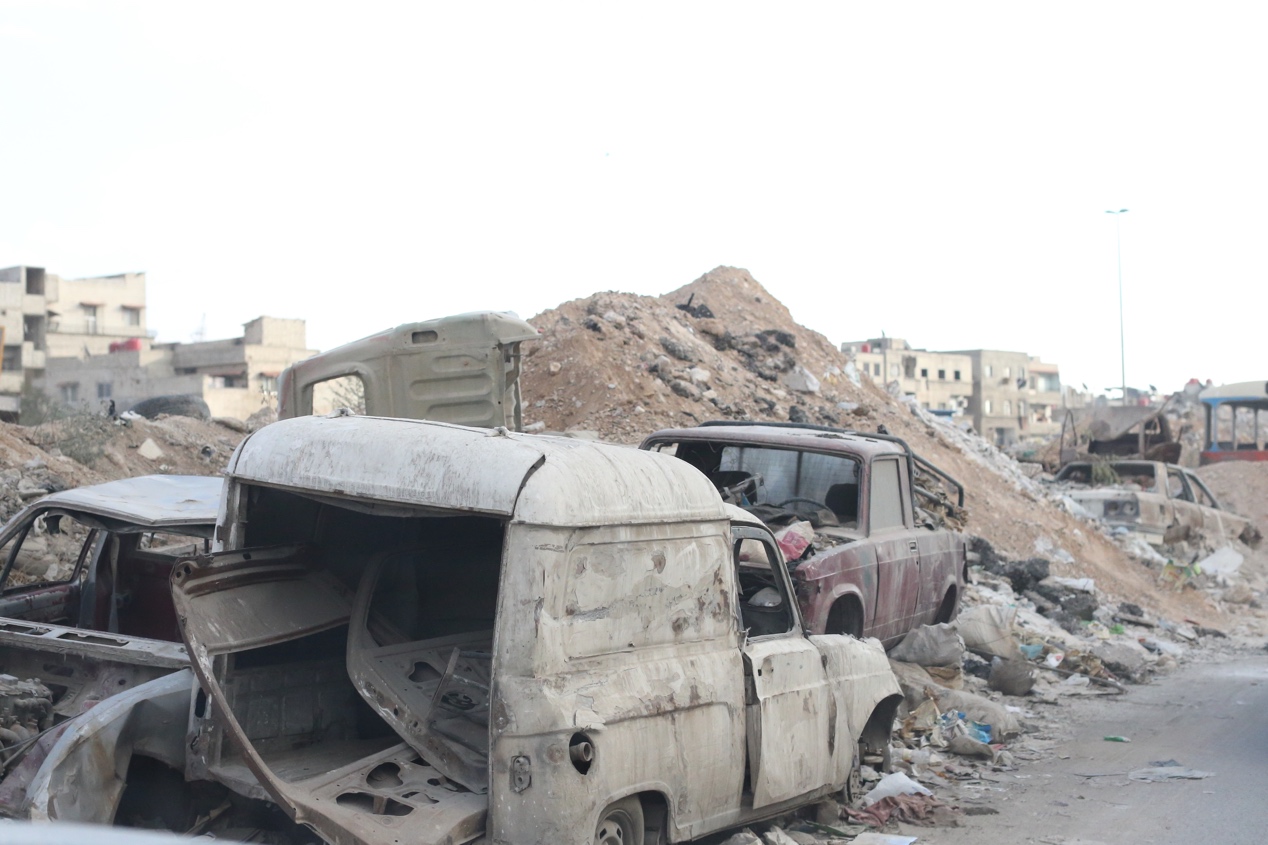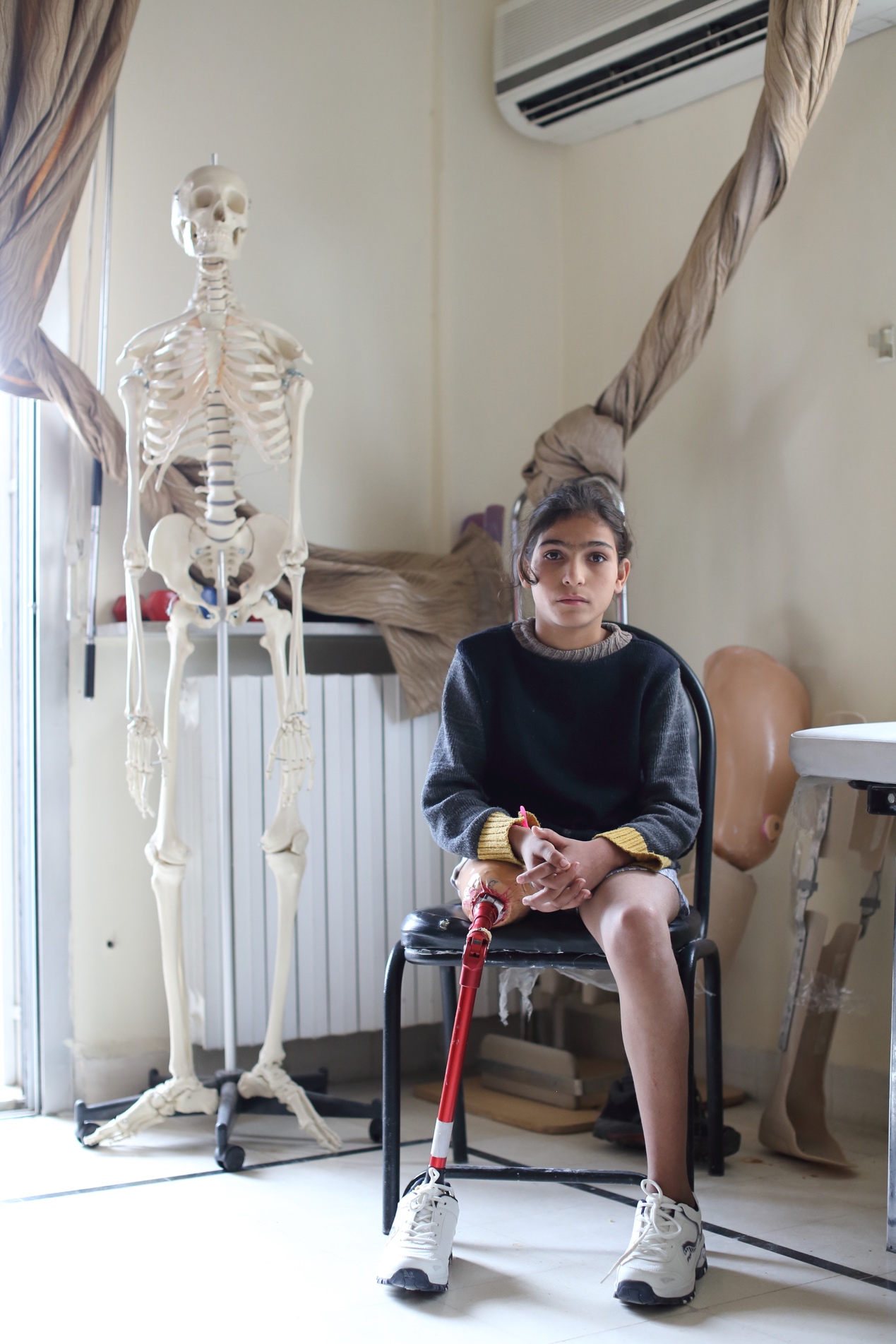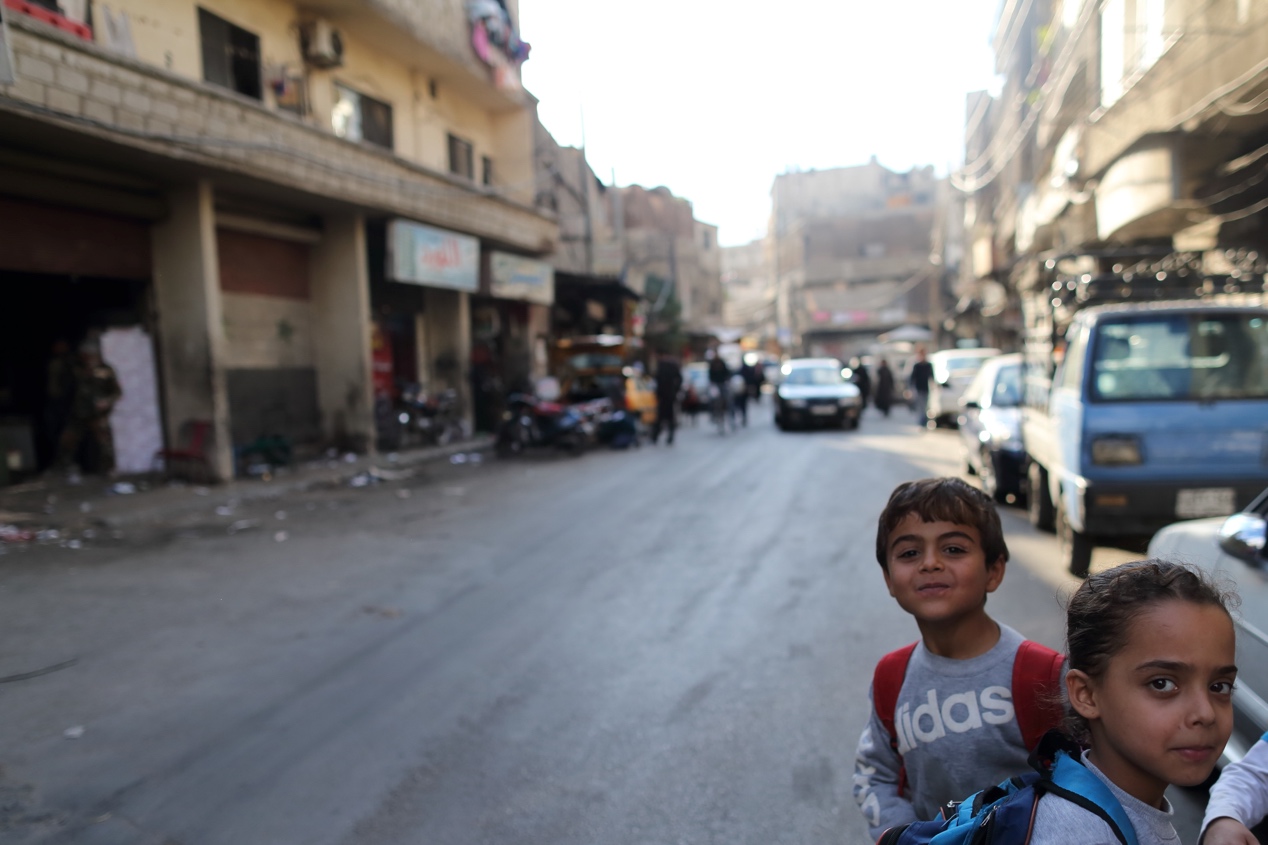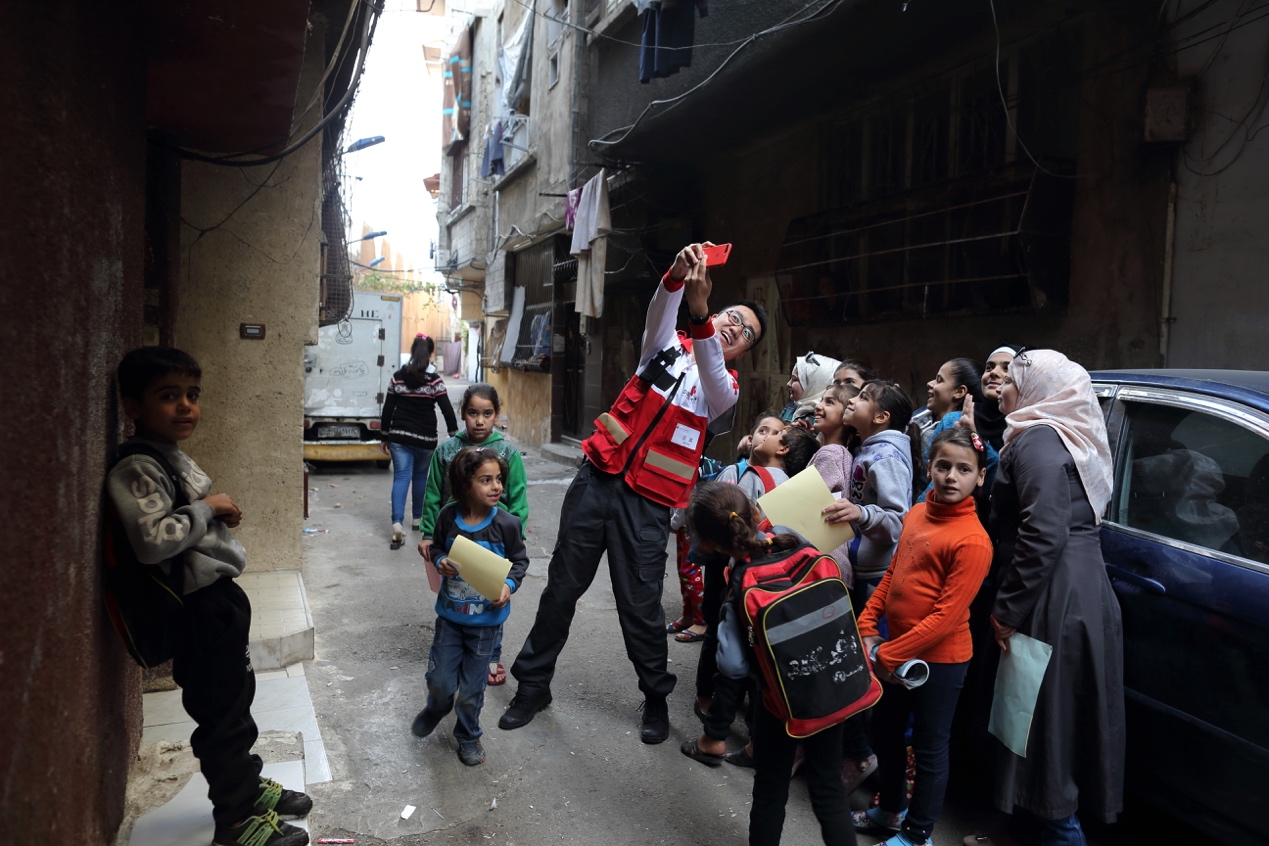October 28, 2017, a 5-member Foreign-aid Project Team, at the assignment of the RCSC, departed from Beijing and arrived in Damascus, Syrian capital at 7 pm local time after a 22-hour journey. The Team aims at implementing the humanitarian aid project of RCSC to the area of military confrontation in Syria.
According to the foreign-aid plan of RCSC and at the appeal and request of the Red Crescent Society of Syria, RCSC will provide several large mobile hospitals as well as Polio, meningitis and hepatitis vaccines to Syria through CRCF B&R Fraternity Fund. This indicates a new breakthrough of RCSC in providing international aid to regions of military confrontation.


(Damascus devastated by the war Photographer: WANG Jing, China Daily)
According to Sun Shuopeng, team leader and CRCF Vice President and Secretary General, it is the first time since the foundation of New China that RCSC dispatches a team to Syria and also another international aid action in region of military confrontation following its aid of the displaced in Kachin, north of Myanmar, in 2014.
Upon arrival, the Project Team, at the support and assistance of the Embassy of China in Syria, held discussions with the Syrian Arab Red Crescent, Ministry of Health, ICRC, and representatives of the International Federation of Red Cross & Red Crescent Societies in Syria and reached a common ground with the Syrian Red Crescent on the implementation and performance evaluation of the RCSC Syria-aid Project, subsequent humanitarian aid and exchanges and cooperation.
Seeing the humanitarian needs of Syria, the large multi-functional mobile hospitals provided by the RCSC has mobile and telemedicine capabilities that provide local people with comprehensive health services such as basic medical treatment, surgery, physical examination, disease screening and inter-hospital transfer. Each unit of mobile hospital consists of two buses and two ambulances. Each bus has been modified to accommodate devices for surgical shelter, biochemical tests, X-ray, B-Ultrasonic Scanner, defibrillation, ECG, in addition to the IT system, to enable remote consultation and real-time communication.
It is learnt that after nearly 7 years of war, over 600 primary health care institutions out of 1826 in Syria have been damages, 52 hospitals out of 98 destroyed, nearly half of 700 ambulances brought to outage and over 20 pharmaceutical companies out of 70 suspended. According to the Syrian Arab Red Crescent President Eng. Khaled Hboubati, the mobile hospitals assisted by the RCSC are not only advanced and complete in facilities, but also can move anywhere in Syria to serve the public's livelihood and health at any time, which is undoubtedly a timely help for Syria where the medical facilities have been greatly damaged.
It is also learnt that free vaccination for children is a national health policy that the Syrian government has long been adhering to and has not stopped even during the war. However, perennial wars have broken the vaccine supply chain. Despite donations by WHO and some countries, a large gap remains. The polio, meningitis and hepatitis vaccines provided by the RCSC are the most urgently needed in the country and will play an important role in the health of local people, especially children. Syrian Deputy Minister of Health Ahmed Khlifawi said that Syria is suffering from war and vaccination is about the protection of children's lives and the future of the nation, which is a major event that benefits the country and the people. He is very grateful for the charity of the RCSC and the Chinese people.
During its stay in Syria, the RCSC Project Team also conducted site visit and investigated humanitarian points for medical services, water supply and artificial limbs provided by the local ICRC and Red Crescent Societies to the displaced, visited the people suffering from war and turmoil and conducted surveys and evaluations on subsequent projects including children's physical rehabilitation center, warmly welcomed by both the public and all parties concerned. Fadi, a Syrian Red Cross staff, said that in the eyes of the Syrians, the Chinese people are trusted friends who have always been kind and sincere to the Syrian people and are truly helping.

A thirteen-year-old Syrian girl accepting treatment at the local Physical Rehabilitation Center of the Red Crescent Society Photographer: WANG Jing, China Daily)


(RCSC Foreign-aid Project Team warmly welcomed by local people Photographer: WANG Jing, China Daily)
It is learnt that according to the overall plan for the implementation of the Belt and Road Initiative and the arrangement for the foreign assistance of the RCSC, in February 2007, the CRCF established the B&R Fraternity Fund to devote efforts to mobilizing social forces to optimize the Belt & Road humanitarian service supply and paying attention to the needs of people's livelihood along the "Belt & Road". Since its foundation, the Fund has carried out international aid projects including the China-Pakistan First Aid Corridor, "Belt and Road" Humanitarian Rescue Plan Afghanistan Action and Mongolia Action. The mobile hospitals and vaccines provided to Syria are respectively donated by the Fund partners including Foton, Sinapharm and Quanjian Group. Under the relevant laws of Syria, approved by the Ministry of Health and the Prime Minister, the mobile hospitals aided by China will be shipped free by COSCO Group to Syria via the Straits of Malacca, Gulf of Aden, Red Sea, Suez Canal and Mediterranean Sea. All vaccines will be air carried in cold-chain transportation.
|

